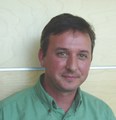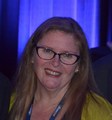WHAT HAPPENS ON THE LAND DOES MATTER! – “Slow, sink and spread rainwater runoff to mimic the water balance,” stated UBC’s Julie Wilson at a workshop organized by the North Shore Streamkeepers (March 2017)

“My goal is for us to think about how water moves through the landscape, as it falls as precipitation and is altered by the urban environment, and then understand how can we can go about mimicking the natural water balance,” stated Julie Wilson. “I have used the Water Balance Express for a few years in the courses that I teach. The reception that I get is overwhelmingly positive. Students really love using the Water Balance Express because it is fun and user friendly.”










